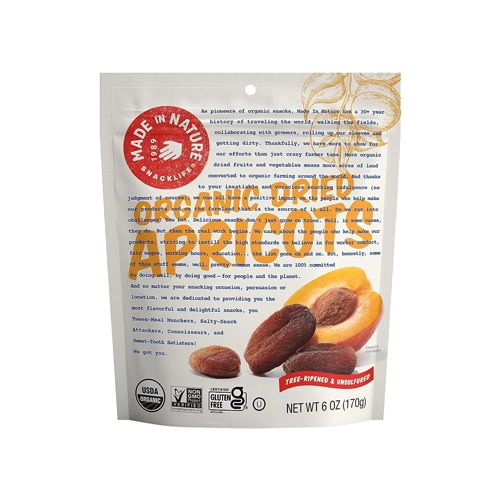[vc_row][vc_column][vc_column_text]Protein-packed and powerfully delicious, these homemade protein bars are a nutritional powerhouse in every bite. Crafted with a blend of wholesome ingredients, these bars not only provide a burst of energy but also deliver a substantial dose of plant-based protein to fuel your day. Ditching the conventional, you’ll combine grain-free paleo flour, heart-healthy walnuts, plant-based protein powder and succulent dried apricots to create a unique flavor profile that will tantalize your taste buds. With a drizzle of melted Hu Dark Chocolate Gems, they’re the perfect balance of nutrition and indulgence.
Chocolate Walnut Energy Bars

- 2-1/4 cups Bob’s Red Mill Paleo Baking Flour
- 1 cup water
- 2 Tbsp. Organic SunButter
- 3 Tbsp. Pri Manuka Honey
- 1/3 cup dried apricots (or goldenberries, diced)
- 1/3 cup walnut halves
- 1/4 tsp. Redmond Real Salt
- 1 scoop (41 g) vanilla protein powder
Chocolate drizzle
- 1/4 cup Hu Gems
- In mixing bowl, combine all energy bar ingredients and mix well.
- Line 9x9 baking pan with parchment paper. Add mixture and press down evenly. Chill 1 hour in freezer.
- Cut into bars.
- In saucepan or double boiler over low heat, melt chocolate about 1 minute, then drizzle over bars.
- Store in refrigerator 7 days, or freeze.
[/vc_column_text][/vc_column][/vc_row][vc_row][vc_column][vc_text_separator title="Featured Products" border_width="2"][vc_row_inner equal_height="yes" content_placement="middle" gap="35"][vc_column_inner width="1/3"][vc_single_image image="173108" img_size="full" alignment="center" onclick="custom_link" img_link_target="_blank" css=".vc_custom_1708380279003{padding-right: 7% !important;padding-left: 7% !important;}" link="https://www.vitacost.com/bobs-red-mill-paleo-baking-flour"][/vc_column_inner][vc_column_inner width="1/3"][vc_single_image image="185912" img_size="full" alignment="center" onclick="custom_link" img_link_target="_blank" css=".vc_custom_1751298445666{padding-right: 7% !important;padding-left: 7% !important;}" link="https://www.vitacost.com/rich-nuts-sprouted-walnuts-cinnamon-walnut-crunch"][/vc_column_inner][vc_column_inner width="1/3"][vc_single_image image="173107" img_size="full" alignment="center" onclick="custom_link" img_link_target="_blank" css=".vc_custom_1708380332690{padding-right: 7% !important;padding-left: 7% !important;}" link="https://www.vitacost.com/made-in-nature-organic-dried-fruit-apricots-in-the-buff"][/vc_column_inner][/vc_row_inner][/vc_column][/vc_row]





